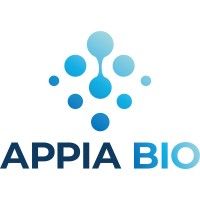Several months after a name change and major restructuring, Kuur Therapeutics has offered an early glimpse at results from a small number of patients treated with their CAR-NKT cell therapies developed with the Baylor College of Medicine.
Out of 10 evaluable neuroblastoma patients dosed with Kuur’s lead candidate, an autologous GD2-targeting CAR-NKT therapy, researchers noted one complete response, one partial response, and three patients with stable disease, according to the Houston-based biotech.
The patient with a complete response had previously achieved a partial response before receiving a subsequent dose of the drug. The drug appeared safe, according to Kuur, with one case of Grade 2 cytokine release syndrome (CRS) occurring in the Phase I trial, dubbed GINAKIT2.
“We have some very good early signs of NKT cells being safe, homing to the site of tumor, which is very important going after solid tumors … and now we’re showing signs of efficacy as well,” CEO Kevin Boyle told Endpoints News. “So, based on that, we want the company to be focused on just this platform.”
The drug consists of natural killer T cells engineered with a CAR targeting GD2, a major ganglioside expressed on many neuroblastoma tumors. It’s designed to secrete IL-15, which has been shown to bolster the efficacy and persistence of CAR-NKT cells in the immunosuppressive tumor microenvironment.
NKT cells are rare lymphocytes that aren’t frequently found in the peripheral blood, and as a result, researchers tend not to work with them, Boyle explained. The scientist leading Baylor’s relationship with Kuur has been working with the cells for two decades, he said.
Kurt Gunter
“One reason that we like this cell type is it homes naturally to the tissue in solid tumors… It also has an invariant T-cell receptor… and that means it’s the same in everyone so it won’t cause graft-versus-host disease when we use it in another person as off-the-shelf therapy. And that means we don’t need to gene edit the TCR and that puts us in a fundamentally different position from the people working with CAR-T cells,” CMO Kurt Gunter said.
Kuur’s second candidate, an off-the-shelf CD19-directed CAR-NKT therapy, achieved a PR and CR in the two patients with hematological malignancies who were evaluable in the Phase I study, ANCHOR. The researchers saw no CRS cases, and no evidence of graft versus host disease (GvHD) — a condition where donor cells attack their host, the company said.
Boyle, who took the helm last March during a major restructuring, expects to read out full data from both the Phase I studies next year. And if all goes well, he’s planning to launch a Phase II expansion trial of the ANCHOR study in 2021.
Until last March, Kuur went by the name Cell Medica. The London-based upstart had locations across two continents and three countries, Boyle said. But instead of working on a variety of cell therapies, the company chose to laser-focus on the CAR-NKT program under an exclusive license with Baylor. It settled on one location in Houston, right next door to their collaborators, and former CEO Chris Nowers was replaced by Boyle, who had previously served as CFO.
The company hopes to close a private financing round this quarter, Boyle hinted, some of which will be used to transform the single-center studies into multi-center studies.
“The situation with neuroblastoma is still kind of bleak especially for these high risk relapsed refractory patients,” Gunter said. “They have general survivals of less than one year, once they’ve relapsed,” he continued, adding that he believes the company can bring a significant benefit to patients.






